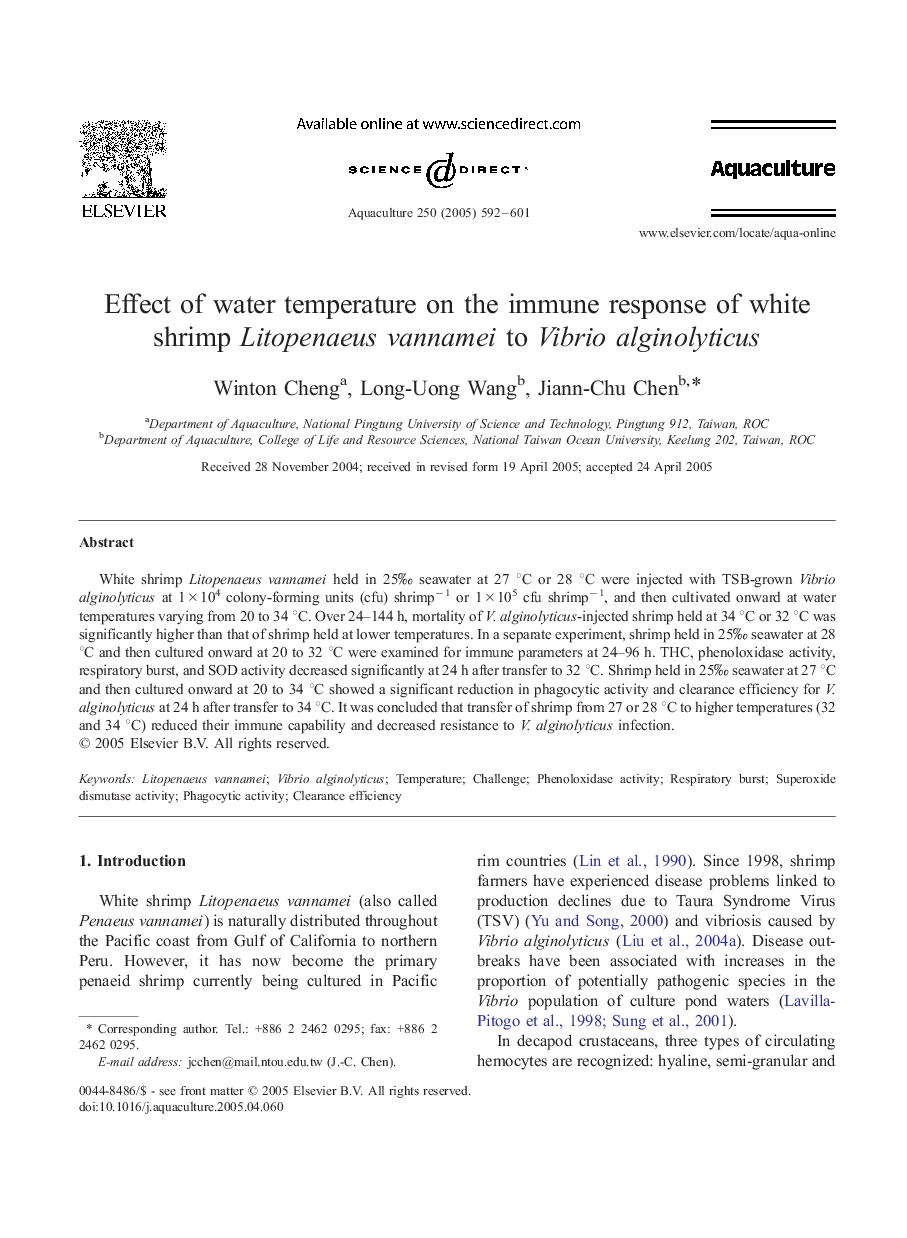| Article ID | Journal | Published Year | Pages | File Type |
|---|---|---|---|---|
| 8974555 | Aquaculture | 2005 | 10 Pages |
Abstract
White shrimp Litopenaeus vannamei held in 25â° seawater at 27 °C or 28 °C were injected with TSB-grown Vibrio alginolyticus at 1 Ã 104 colony-forming units (cfu) shrimpâ 1 or 1 Ã 105 cfu shrimpâ 1, and then cultivated onward at water temperatures varying from 20 to 34 °C. Over 24-144 h, mortality of V. alginolyticus-injected shrimp held at 34 °C or 32 °C was significantly higher than that of shrimp held at lower temperatures. In a separate experiment, shrimp held in 25â° seawater at 28 °C and then cultured onward at 20 to 32 °C were examined for immune parameters at 24-96 h. THC, phenoloxidase activity, respiratory burst, and SOD activity decreased significantly at 24 h after transfer to 32 °C. Shrimp held in 25â° seawater at 27 °C and then cultured onward at 20 to 34 °C showed a significant reduction in phagocytic activity and clearance efficiency for V. alginolyticus at 24 h after transfer to 34 °C. It was concluded that transfer of shrimp from 27 or 28 °C to higher temperatures (32 and 34 °C) reduced their immune capability and decreased resistance to V. alginolyticus infection.
Keywords
Related Topics
Life Sciences
Agricultural and Biological Sciences
Aquatic Science
Authors
Winton Cheng, Long-Uong Wang, Jiann-Chu Chen,
